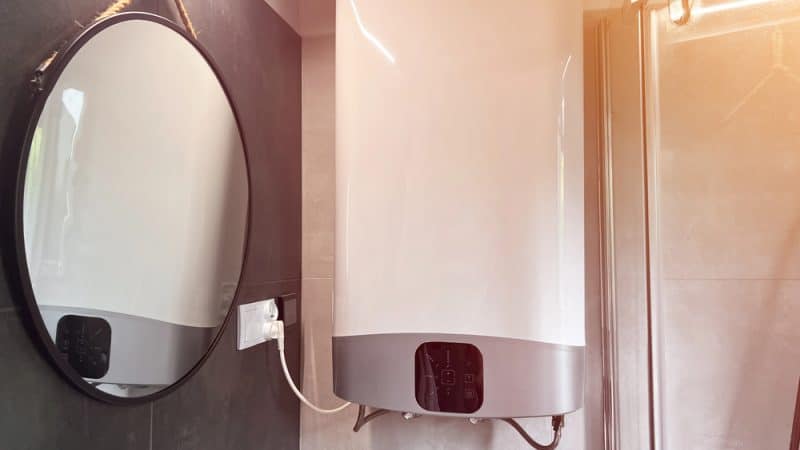What to Know About AC Drain Line Clogs and Leaks

Air conditioning systems are essential for comfort in homes, especially during hot months. Yet, like any mechanical system, they can run into problems, particularly with the drain line.
Understanding AC drain line clogs and leaks helps homeowners prevent issues and maintain system efficiency.
Understanding the AC Drain Line
An air conditioning unit removes humidity and moisture from the air. This moisture collects in a pan and drains through a line to the outside. The drain line is crucial; without it, water backs up, leading to malfunctions and potential water damage.
The drain line typically runs from the indoor unit to the exterior of your home. It usually is made from PVC or flexible tubing, making it relatively easy to install. However, it’s not immune to problems.
Common Causes of Clogs
Clogs can stem from various sources. The most common culprit is algae and mold growth inside the drain line. Moisture creates a perfect breeding ground for these organisms, which can gradually build up and restrict flow.
Additionally, dirt and debris can accumulate in the line. If the air filter is dirty or the unit is not maintained, particles can enter the drain line, causing blockages. It’s a bit like a clogged sink where food particles pile up over time, leading to a complete blockage.
Symptoms of a Clogged Drain Line
Recognizing the symptoms of a clog can save you from more significant issues. One clear sign is water pooling around the indoor unit. If you notice this, it’s a good indication that the drain line is blocked.
Another symptom is reduced cooling efficiency. If your AC seems to be running longer than usual to cool your space, it may struggle due to a clogged drain line. You might also hear gurgling sounds, which indicate that water is attempting to flow through a blockage.
In cases like this—especially with older units—it may be more practical to replace your cooling unit instead of repeatedly patching issues.
Leaks: What You Need to Know

Leaks can occur for various reasons, and identifying the source is key. Sometimes, the drain line itself may be damaged or improperly connected. This can lead to water escaping where it shouldn’t, causing potential damage.
Another issue might be the condensate pump. If your AC uses one to push water through the drain line, a malfunctioning pump can lead to leaks. In these scenarios, the pump may fail to remove the water effectively, resulting in leaks inside your home.
Preventing Clogs and Leaks
Prevention is often the best approach. Regular maintenance of your AC unit can go a long way. This includes changing or cleaning air filters, which helps keep debris out of the system.
It’s also wise to inspect the drain line periodically. Look for signs of growth or blockages. Flushing the drain line with a mixture of vinegar and water can help break down algae and mold before they become a problem. This simple act can keep your AC running smoothly and efficiently.
When to Call a Professional
Sometimes, DIY solutions are not enough, and that’s when it’s time to call in the experts. If you’ve cleared a clog but still experience issues, a deeper inspection may be necessary. Professionals can use specialized tools to access and clean the entire drain line.
Moreover, if you notice persistent leaks, do not hesitate to reach out for help. Attempting to fix these without the proper knowledge and tools can lead to more significant issues down the line and can be a costly mistake.
Understanding the Costs
If you find yourself needing to address a clog or leak, it’s essential to understand potential costs. Minor repairs or cleaning the drain line can be relatively inexpensive.
However, if the issue leads to more extensive damage, like mold growth or drywall replacement, those costs can escalate quickly.
Regular maintenance can help avoid these unexpected expenses. Investing in routine inspections can save you money in the long run, keeping your system running efficiently and avoiding costly repairs.
The Importance of Regular Maintenance
Have you ever heard the saying, “An ounce of prevention is worth a pound of cure?” This applies perfectly to air conditioning systems. Regular maintenance checks can catch small issues before they snowball into larger problems.
Consider setting up a schedule with a professional HVAC technician. This proactive approach ensures that your system remains in top shape, reducing the likelihood of clogs and leaks. A technician can lubricate moving parts, check refrigerant levels, and inspect the drain line, identifying potential issues early.
DIY Tips for Homeowners
If you’re leaning towards a DIY approach, there are several steps you can take. Start by regularly checking and replacing your air filter. A clean filter not only improves air quality but also reduces stress on your AC.
Next, examine the drain line for any visible debris or growth. If you spot something, use a wet-dry vacuum to remove it. It’s a straightforward task that can make a significant difference.
Additionally, pour a cup of vinegar down the line every few months. This will help keep the line clean and free from buildup.
Recognizing the Signs of Bigger Problems
Sometimes, a clogged drain line can be a symptom of a more significant issue. For instance, if your AC unit is frequently freezing up, it could be due to low refrigerant levels. This situation not only affects cooling efficiency but can also lead to more severe clogs.
If your system is struggling to keep your home cool, it might be time to evaluate its overall health. An HVAC technician can assess the system and recommend necessary repairs or replacements.
The Role of Humidity
Humidity levels play a significant role in your AC’s functionality. High humidity means more moisture for the AC to remove. If the system cannot handle this moisture, it can lead to clogs and leaks. Monitoring indoor humidity can be beneficial, especially in regions with high humidity.
If your home feels muggy or damp, consider using a dehumidifier. This device can help reduce the workload on your AC and prevent potential drain line issues.
Using Technology to Your Advantage
Today, many homeowners are turning to smart technology for home maintenance. Smart thermostats can help optimize your air conditioning system, ensuring it runs efficiently. Some systems even have alerts that notify you when the drain line is clogged or the filter needs changing.
Investing in smart technology can help you stay ahead of potential issues, making maintenance easier and more efficient.







